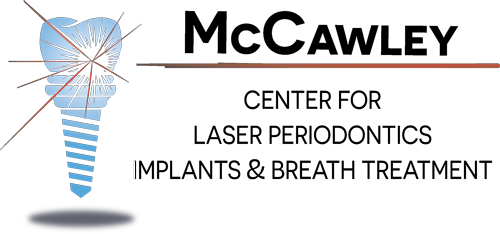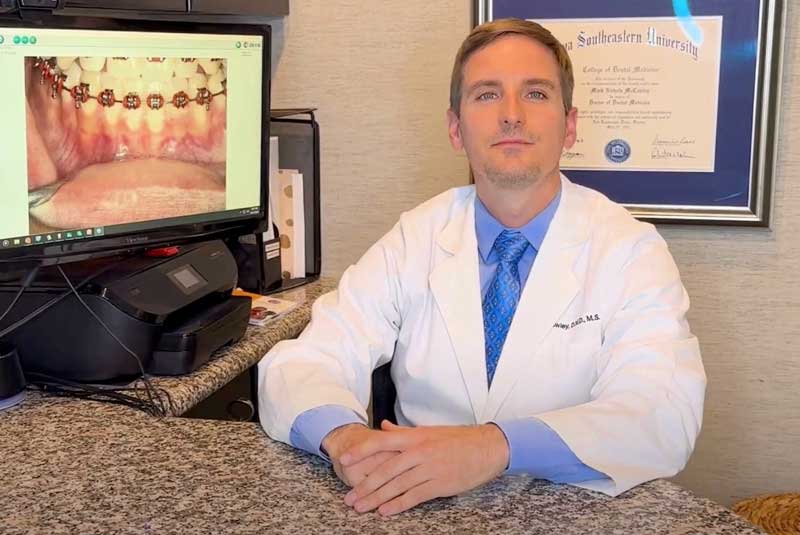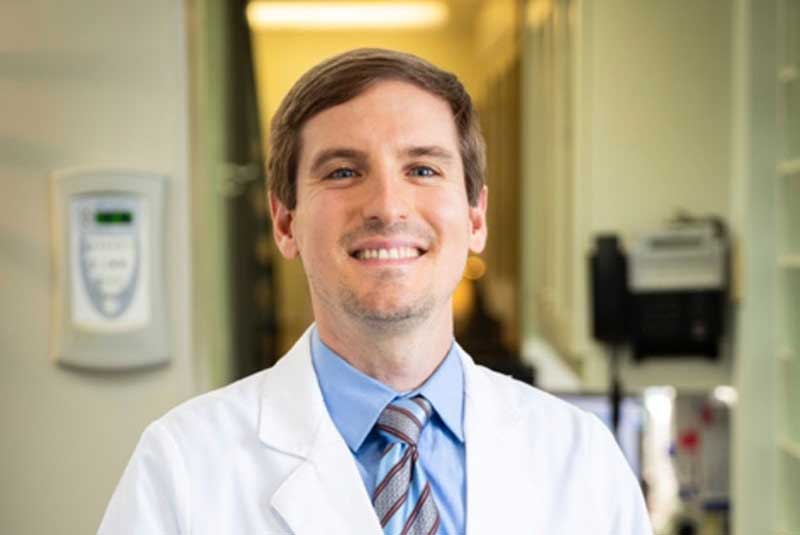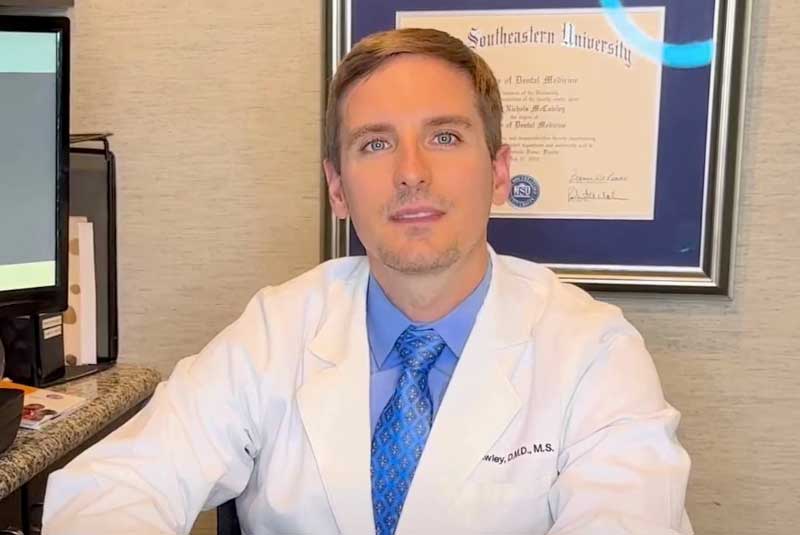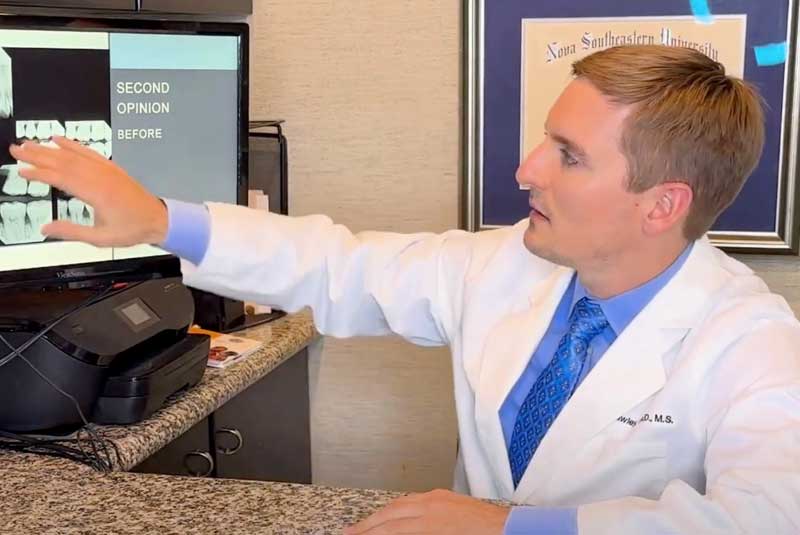Dental Bone Grafts in Fort Lauderdale
At the McCawley Center for Laser Periodontics and Implants, we believe in saving teeth and regenerating tissue whenever we can.
Thanks to advanced laser protocols like LANAP®, we are often able to stimulate natural bone growth without the need for traditional bone grafting. However, when bone loss is too advanced, bone grafting for teeth and dental implants remains a reliable option.
We offer dental bone grafts at our periodontal clinic in Fort Lauderdale, FL.
What Is a Dental Bone Graft?
A dental bone graft is a surgical procedure used to rebuild or replace missing bone in the jaw. The goal is to restore the structure of the bone so it can support a dental implant or stabilize surrounding teeth.
Bone grafting may be necessary when:
- Teeth have been missing for a long time
- Advanced gum disease (periodontal disease) has damaged the jawbone
- A tooth extraction left the area weak or sunken
- The jaw lacks the density needed for dental implant surgery
We use a variety of bone graft materials including donor bone, autogenous bone grafts, and synthetic materials that promote bone regeneration.
Types of Bone Graft Materials
We offer several types of bone graft materials, each selected based on your unique anatomy and treatment goals:
- Autogenous bone grafts: harvested from your own body, typically the chin or jaw
- Allografts: donor bone sourced from a certified tissue bank
- Xenografts: bone derived from another species, commonly bovine
- Synthetic materials: biocompatible grafts made from calcium-based compounds designed to promote natural bone growth
Lorem ipsum dolor sit amet, consectetur adipiscing elit. Ut elit tellus, luctus nec ullamcorper mattis, pulvinar dapibus leo.
Types of Bone Grafting Procedures
If grafting is necessary, we tailor the treatment to your needs:
Socket Preservation
Placed at the time of tooth extraction to maintain bone structure and prevent future collapse.
Ridge Augmentation
Used to rebuild areas where bone has shrunk or flattened due to prolonged tooth loss.
Sinus Lift
For upper jawbone loss, this technique raises the sinus membrane and adds bone to allow stable implant placement.
Every procedure is customized using 3D imaging and advanced planning for predictable results.
Supporting Natural Bone Regrowth Whenever Possible
Our first approach is to use laser-based regenerative techniques whenever appropriate. We aim to stimulate your body’s own ability to regrow bone before considering surgical grafting. That is because we offer the FDA-cleared LANAP® protocol, a laser-based technique that can:
- Kill disease-causing bacteria
- Stimulate the regrowth of bone tissue
- Preserve and stabilize existing bone
If laser treatment succeeds in restoring enough bone volume, no graft is needed at all. We only recommend bone grafting procedures when there is not enough natural regeneration to support a dental implant or ensure long-term oral health.
LAPIP® and Bone Loss Around Implants
Bone loss does not only affect natural teeth, it can also occur around dental implants. When this happens, it is often due to a condition called peri-implantitis.
We offer the LAPIP® protocol (Laser Assisted Peri-Implantitis Procedure) to treat infection and promote bone regeneration around ailing implants.
LAPIP targets the infected tissue around the implant, disinfects the site, and stimulates your body to regrow supporting bone. In many cases, this minimally invasive procedure can help save an implant without the need for grafting or removal.
If bone loss around the implant is too severe, we may recommend bone grafting to rebuild the site before attempting further implant treatment. Our team will evaluate your condition and walk you through every available option.
What to Expect From the Dental Bone Graft Procedure
If bone grafting is required, here is what you can expect:
We numb the area and, if desired, offer sedation for comfort.
A small incision is made in the gum tissue, and the bone graft material is carefully placed.
The graft is covered and protected to support bone healing.
Recovery usually involves mild soreness, and most patients return to normal activity within a few days.
Each grafting technique differs slightly based on the location, material used, and your individual needs. We will explain your specific treatment steps in detail during your consultation.
Dental Bone Graft Healing Stages
Healing happens in stages:
- Initial healing (1–2 weeks): Swelling and minor discomfort are normal.
- Early bone formation (2–6 weeks): Your body begins integrating the graft.
- Mature bone growth (3–6 months): The area gains strength and density.
By the end of the process, the grafted area can often support a strong, lasting dental implant.
We monitor healing carefully and offer immediate care if issues arise.
Why Choose McCawley Center for Bone Regeneration
- We prioritize laser regeneration first to help you avoid surgery when possible
- More than 50 years of combined experience with bone loss and periodontal disease
- Advanced diagnostics using 3D imaging and microbial analysis
- Customized treatment plans based on your oral health and medical history
Whether you are missing one tooth or have widespread bone loss, we deliver treatment that supports long-term results.
FAQs About Dental Bone Grafting
Most patients report only mild to moderate discomfort during recovery. The procedure is done under local anesthesia or sedation, and post-operative pain can usually be managed with over-the-counter medications.
A bone graft can last a lifetime if it heals properly and integrates well with your natural bone. Once the grafted bone becomes stable, it forms a permanent part of your jaw structure. However, if a dental implant is not placed within a reasonable timeframe, the bone may begin to resorb again due to lack of stimulation. That is why timely implant placement is essential to preserve the graft and maintain long-term bone density.
The cost of a dental bone graft varies depending on the type of graft, the amount of material needed, and whether it is performed in conjunction with other procedures. At our office a detailed examination is performed as well as a CBCT scan to allow us to plan out the specific grafting procedure that is best for your case. After this our team will give you a detailed breakdown of the exact cost for your individual grafting needs.
While most bone grafts are successful, potential downsides include infection, graft rejection, delayed healing, or the need for additional procedures if the graft does not integrate fully. These risks are uncommon and are minimized through proper care and follow-up.
Schedule Your Consultation in Fort Lauderdale
If you have been told you do not have enough healthy bone for an implant, we encourage you to schedule a consultation.
Our skilled periodontist and implant specialist, Dr. Mark McCawley, will evaluate your bone health, explore laser-based regeneration whenever appropriate, and discuss whether grafting is necessary to support long-term success with dental implants.
To book an appointment at our periodontal office in Ft. Lauderdale, FL, call (954) 807-4829 or visit us at 800 East Broward Blvd #706, Fort Lauderdale, FL.
